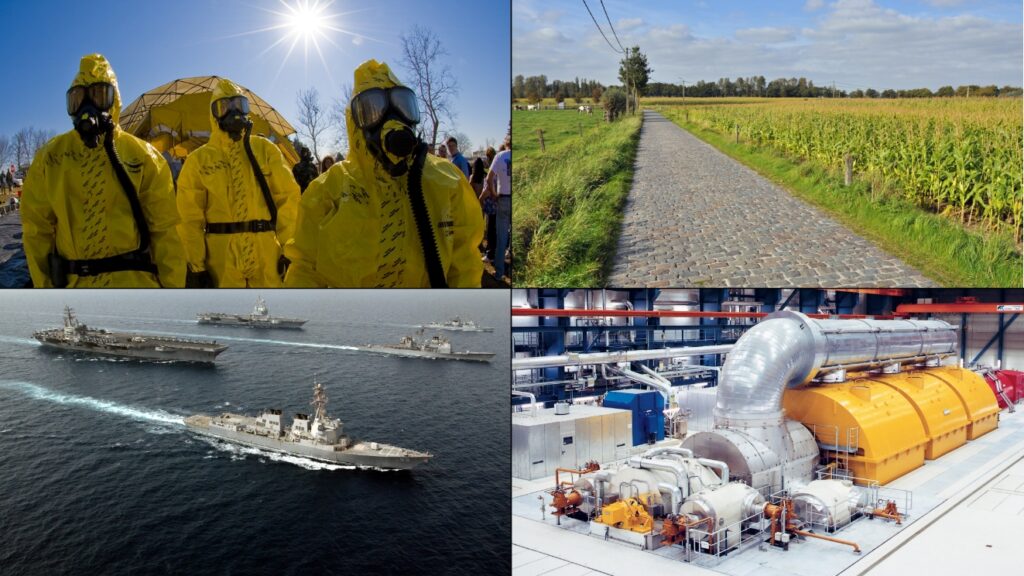
View the paper “All-Hazards Policy for Global Catastrophic Risk”
There are many similarities and linkages between the global catastrophic risks, as well as synergies in measures to address them. For these and other reasons, GCRI has an active program on cross-risk evaluation & prioritization. Unfortunately, policy for global catastrophic risk often focuses on one risk at a time, failing to take advantage of the ways to address multiple global catastrophic risks concurrently. Therefore, this report develops a cross-risk, “all-hazards” approach to policy for global catastrophic risk.
The report is written by Rumtin Sepasspour. Sepasspour is co-founder and Director of Policy for Global Shield, a new organization dedicated to advancing all-hazards policy for reducing global catastrophic risk. Sepasspour’s work on this report was funded by GCRI. Sepasspour was also a 2021 GCRI Fellow. Sepasspour’s work on global catastrophic risk policy builds on his experience in government policy positions, most recently in the Department of the Prime Minister and Cabinet of Australia. His work, including this report, demonstrates the value of non-academic professional experience in advancing the intellectual frontier of global catastrophic risk.
The report is the first to apply an all-hazards framework for global catastrophic risk policy. The all-hazards framework is commonly used in other areas of risk policy, especially for emergency disaster response. Different types of disaster often require similar types of response, so it is more efficient and effective for governments to prepare for them together. Similarly, different global catastrophic risks often benefit from similar types of response, making an all-hazards approach more successful for reducing global catastrophic risk.
The report develops two types of all-hazards policy for global catastrophic risk:
Overarching policy manages global catastrophic risk as a set. In other words, overarching policies are focused on the overarching theme of global catastrophic risk, instead of being focused on specific aspects of global catastrophic risk. The report covers overarching policies that involve efforts to govern, understand, prevent, prepare for, respond to, communicate about, and collaborate on GCR. Specific examples of overarching policies could include risk assessment, monitoring and warning protocols, reducing drivers of GCR, planning and resilience, disaster response and recovery, and public communications.
Cross-cutting policy addresses specific issues that intersect with multiple global catastrophic risks. This includes policies that can affect multiple global catastrophic risks. It also includes policies that are affected by multiple global catastrophic risks, meaning that the policies should take those global catastrophic risks into account. The report covers cross-cutting policies related to international relations and foreign policy; politics and governance; security and defense; economics and finance; natural resources and the environment; infrastructure and the built environment; health and healthcare; knowledge and information; technology and innovation; and society and culture.
The report presents the following recommendations:
• GCR experts should study all-hazard GCR and its policy implications. Additionally, they should identify and study risk drivers and factors, which are those conditions that lead to or exacerbate GCR.
• GCR research organizations and funders should provide dedicated support for all-hazards GCR policy. This support would include funding and analytical resourcing.
• GCR policy advocates should demand more all-hazards GCR policy research from the expert community. They should develop all-hazards GCR policy options for policymakers.
• Policymakers should develop all-hazards GCR policy and engage with the GCR expert community to formulate these policies.
Academic citation:
Sepasspour, Rumtin, 2023. All-Hazards Policy for Global Catastrophic Risk. Global Catastrophic Risk Institute Technical Report 23-1.
Image credits:
Hazmat: U.S. Air Force
Crops: Marc Ryckaert
Naval fleet: U.S. Navy
Turbogenerator: Siemens







